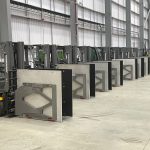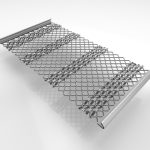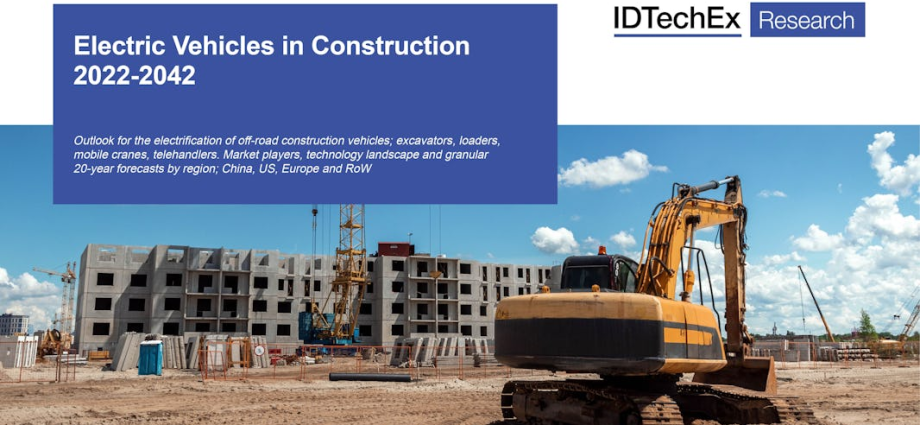Construction vehicles powered by diesel engines contribute significantly to costs and environmental pollution, affecting nearby communities and ecosystems. However, the shift toward electric construction vehicles is accelerating, driven by advancements in battery technology, growing industry interest, and the societal benefits of electrification. According to IDTechEx’s report, Electric Vehicles in Construction 2024-2044: Technologies, Players, Forecasts, this transition is set to redefine the construction sector.
Electric construction vehicles are engineered to maximize productivity, reliability, and efficiency while substantially reducing operational costs. The choice of battery chemistry plays a critical role in ensuring cost-effective electrification and achieving a total cost of ownership that is more favorable than diesel-powered alternatives. Unlike passenger vehicles, construction machines require sustained power over extended periods, making lower power densities adequate for their operation. Moreover, electrification introduces opportunities to replace traditional hydraulic systems with electric linear actuators, reducing maintenance demands, enhancing vehicle durability, and further cutting operational expenses.
Lithium Iron Phosphate (LFP) batteries have emerged as the preferred choice for electric construction vehicles due to their durability and cost-effectiveness. In contrast, Nickel Manganese Cobalt (NMC) batteries, which offer higher energy and power density, are more suitable for compact machines but come at a higher cost. While NMC batteries dominate the European market, LFP batteries are the leading option in China. Currently, over 75% of battery pack manufacturers in Europe and North America rely on NMC batteries.
Innovations like fast charging, battery swapping, and tethering are addressing concerns about electric construction vehicles running out of power during work shifts. Many new models are equipped with larger batteries, enabling them to complete a full day’s tasks without interruptions. These advancements ensure that electric machines are not only reliable but also practical for demanding construction environments.
The benefits of electric construction vehicles extend beyond cost savings and operational efficiency. Noise pollution is significantly reduced, enhancing communication among operators and minimizing disruptions to surrounding communities. Additionally, the elimination of harmful diesel emissions improves air quality, benefiting the health of workers and nearby populations.
IDTechEx projects that by 2044, annual sales of electric construction vehicles will exceed 650,000 units, with the market projected to be worth over $126 billion. This transformative shift underscores the potential of electrification to reshape the construction industry, delivering both economic and environmental advantages.















